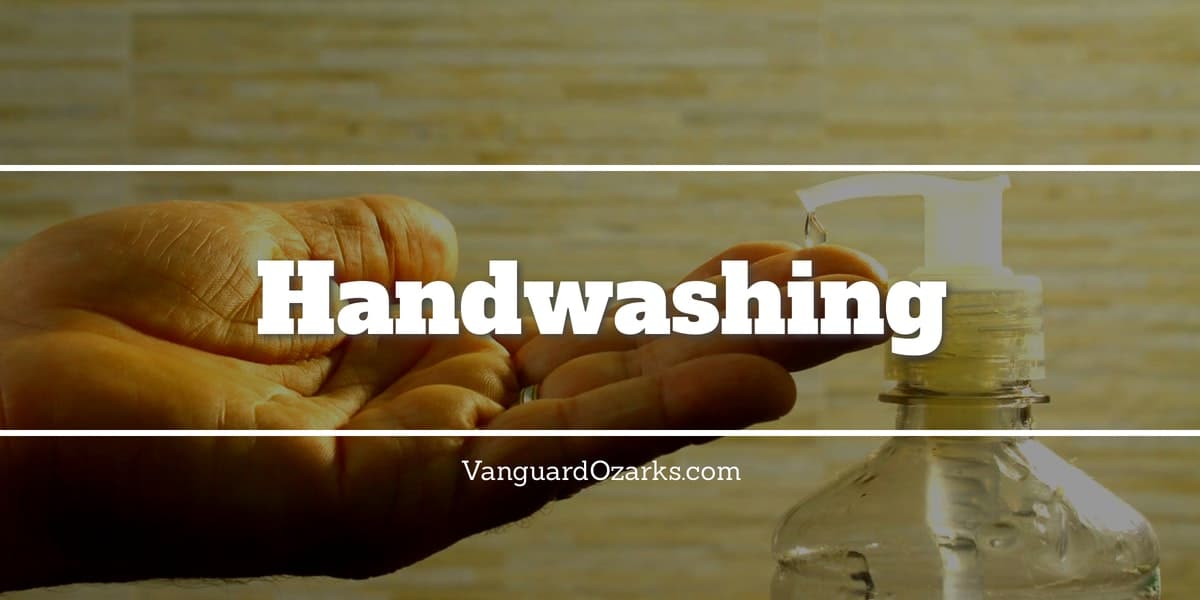Washing your hands in accordance with specific guidelines is the single best method for the prevention of the spread of germs and bacteria that negatively impact both school and workplace performance and attendance.

The Importance of Washing Your Hands
Let's get right down to the dirty truth--washing your hands regularly with soap and water saves lives.
According to a 2005 article published by the National Institute of Health (NIH);
More than 3.5 million children aged less than 5 years die from diarrhoea and acute lower respiratory-tract infection every year.
We undertook a randomised controlled trial to assess the effect of handwashing promotion with soap on the incidence of acute respiratory infection, impetigo, and diarrhoea.
Children younger than 5 years in households that received plain soap and handwashing promotion had a 50% lower incidence of pneumonia than controls.
Also compared with controls, children younger than 15 years in households with plain soap had a 53% lower incidence of diarrhoea and a 34% lower incidence of impetigo.
Incidence of disease did not differ significantly between households given plain soap compared with those given antibacterial soap.
Effect of handwashing on child health: a randomised controlled trial.
Additionally, workplace illnesses cost businesses hundreds of millions of dollars per year in lost productivity.
Most workplace illnesses are acquired through direct contact with a contaminated surface or person.
According to Brad Williams of the Healthy Workplace Project, regular handwashing can significantly reduce the transmission of colds, the flu, and common stomach ailments.
No one can avoid it entirely, but by washing, wiping and sanitizing, employees can reduce their rates of cold, flu and stomach illness by up to 80 percent.
When & How to Wash Your Hands
According to the U.S. Centers for Disease Control and Prevention (CDC), there are several critical times per day when a person should wash their hands, including:
- Before, during, and after the preparation of food.
- Before eating.
- Before, during, and after caring for someone who is sick.
- Before and after cleaning or treating a cut or other wound.
- After using the restroom.
- After changing a diaper or cleaning up after a child who has used the restroom.
- After blowing your nose, coughing, or sneezing.
- After feeding or working with animals or cleaning up animal waste, and;
- After handling garbage.
Additionally, the CDC recommends the following handwashing guidelines:
- If possible, use clean, potable water--warm or cold does not matter.
- Lather up with regular soap. Bar or liquid soap is fine. There is no benefit to using antibacterial soap.
- Scrub your hands for 20-30 seconds. When teaching children, have them sing their ABC's or the Happy Birthday song twice.
- Rinse with clean, potable water.
- Dry your hands with a clean towel, or allow them to air dry.
Additional recommendations include:
- Use a clean paper towel to open the door to restrooms when exiting to avoid recontamination of the hands and dispose of the towel once you have exited.
- Apply liquid antibacterial hand sanitizer with an alcohol content of at least 60% after exiting the restroom to kill any remaining germs.
- Avoid the use of just liquid hand sanitizer on obviously soiled hands, as its efficacy will be significantly reduced.
- In the event hand sanitizer and soap are unavailable, washing your hands with water and drying them with a towel is better than nothing.
References & Resources
- What You Need To Know About Handwashing
- Handwashing: Clean Hands Save Lives - Publications, Data, & Statistics
- When & How to Wash Your Hands
Takeaway
Occupant hand hygiene is a vital component of a healthy facility, and ensures the safety and wellbeing of everyone.
A high-performance custodial service provider focused on cleaning for health will strive to ensure that all restroom facilities are thoroughly cleaned to encourage use, as well as make certain that the facility is adequately stocked with liquid soap and paper towels, that the area is free of debris, and that the trashcans are cleaned and emptied routinely.
Following these guidelines will have a significant improvement in absenteeism and the costs associated with school and workplace acquired illnesses.
Keep in mind that these policies are required and must be enforced in childcare, food preparation, and healthcare environments.
If you have any questions or concerns, reach out to your custodial provider to verify that your facility is adequately stocked with hand hygiene supplies and immediately address customer and occupant complaints with the restrooms.
Contact us today and discover why Vanguard Cleaning Systems® is the Standard of Clean® for businesses throughout Northwest Arkansas, Missouri, and Oklahoma.
In Oklahoma, dial 918-960-4450
In Arkansas, dial 479-717-2410
In Missouri, dial 417-812-9777


